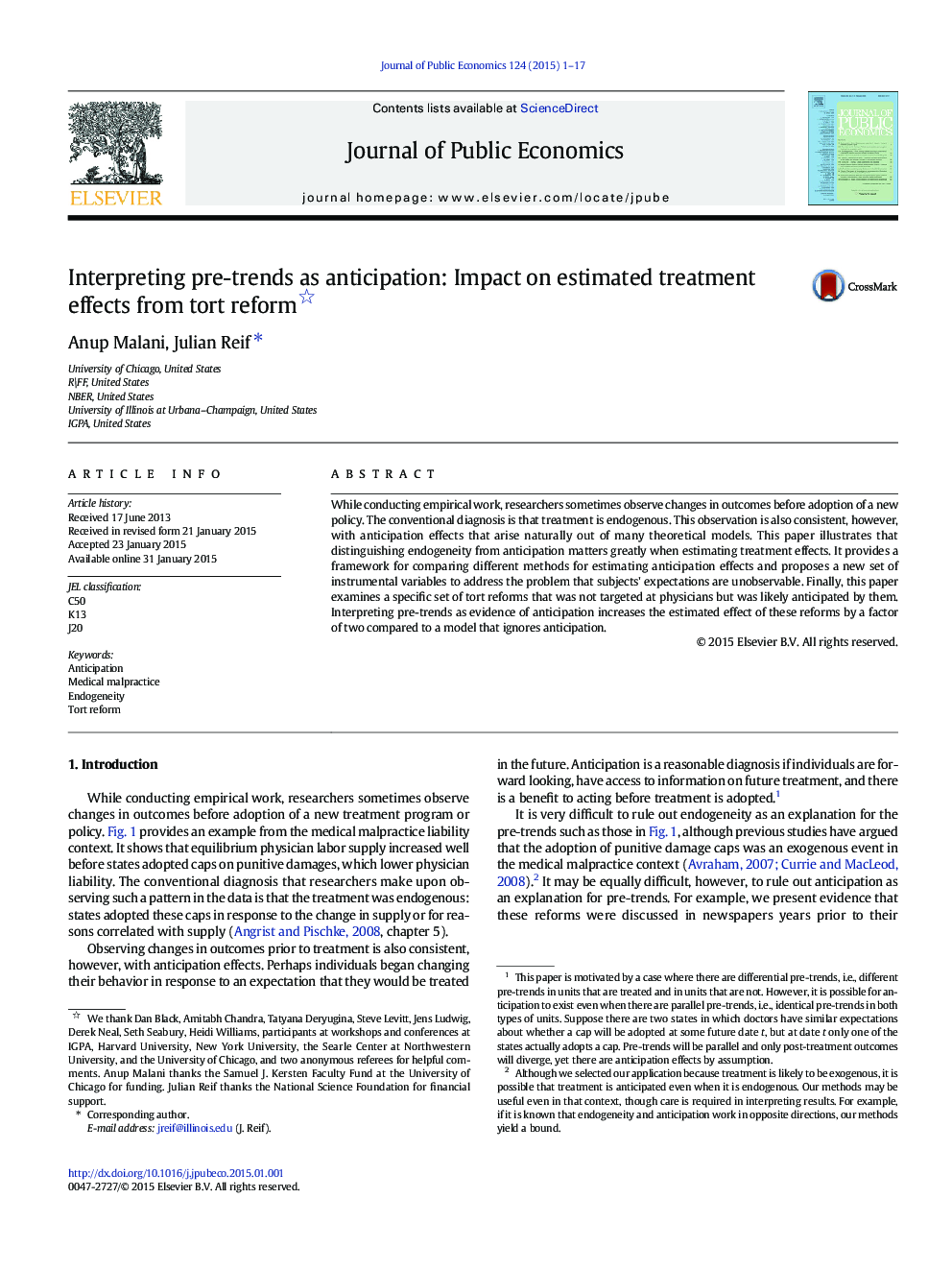| Article ID | Journal | Published Year | Pages | File Type |
|---|---|---|---|---|
| 968783 | Journal of Public Economics | 2015 | 17 Pages |
•We demonstrate distinguishing endogeneity from anticipation matters greatly when estimating treatment effects.•We develop a framework to estimate the effect of tort reform on physician supply.•Accounting for anticipation increases the estimated effect of tort reform.
While conducting empirical work, researchers sometimes observe changes in outcomes before adoption of a new policy. The conventional diagnosis is that treatment is endogenous. This observation is also consistent, however, with anticipation effects that arise naturally out of many theoretical models. This paper illustrates that distinguishing endogeneity from anticipation matters greatly when estimating treatment effects. It provides a framework for comparing different methods for estimating anticipation effects and proposes a new set of instrumental variables to address the problem that subjects' expectations are unobservable. Finally, this paper examines a specific set of tort reforms that was not targeted at physicians but was likely anticipated by them. Interpreting pre-trends as evidence of anticipation increases the estimated effect of these reforms by a factor of two compared to a model that ignores anticipation.
